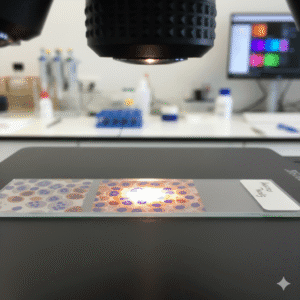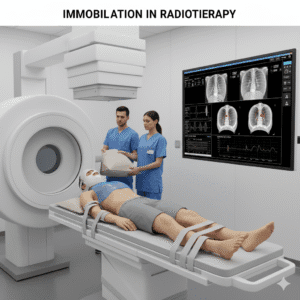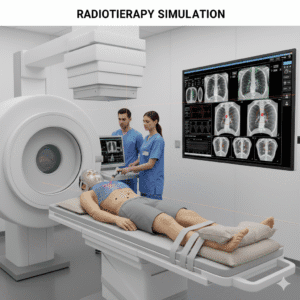
Cancer Info
Anal cancer
How common is anal cancer in India?
Anal cancer is relatively rare in India, accounting for about 1-2% of all cancers. The incidence is increasing, with around 1,000 new cases diagnosed each year. It’s more common in people over 50, but younger individuals can also be affected.
What are the risk factors for anal cancer?
Key risk factors include:
- Infection with human papillomavirus (HPV)
- Smoking
- Having multiple sexual partners
- A history of anal or cervical dysplasia
- Weakened immune system (such as from HIV)
What are the symptoms of anal cancer?
Common symptoms include:
- Bleeding from the anus or rectum
- Pain or discomfort in the anal area
- A lump or mass near the anus
- Changes in bowel habits
- Narrowing of the stool
How is anal cancer diagnosed?
Diagnosis typically involves:
- Physical examination: Including a digital rectal exam to check for abnormalities.
- Anoscopy: A procedure using a small tube with a light to examine the anal canal.
- Biopsy: A sample of tissue is taken to confirm the presence of cancer cells.
- Imaging tests: CT scans or MRI may be used to assess the extent of the disease.
How do doctors determine the stage of anal cancer?
Using information from MRI, CT and PET scans along with endoscopy findings, doctors stage the tumour according to:
- Size of the tumor
- Involvement of lymph nodes
- Presence of metastasis (spread to distant organs)
What is the management based on staging?
Management strategies vary by stage:
- Stage I: Often treated with surgery alone, such as local excision.
- Stage II: Usually involves a combination of surgery and radiation therapy.
- Stage III: Generally requires a combination of chemotherapy and radiation, sometimes followed by surgery.
- Stage IV: May require more aggressive treatment, focusing on palliative care if necessary.
What role does HPV play in anal cancer?
HPV is a major risk factor for anal cancer, particularly types 16 and 18. Vaccination against HPV can significantly reduce the risk of developing anal and other HPV-related cancers. The vaccine is recommended for preteens and young adults.
What prevention strategies are available for anal cancer?
Preventive strategies include:
- Getting the HPV vaccine, which can protect against the types of HPV that cause anal cancer.
- Practicing safe sex to reduce the risk of HPV transmission.
- Avoiding tobacco use, as smoking is a risk factor.
- Regular screenings for high-risk individuals, such as those with a history of anal dysplasia.
What role does surgery play in treating anal cancer?
Surgery aims to remove the cancerous tissue. Options include:
- Local excision: Removing the tumor and some surrounding tissue.
- Abdominoperineal resection (APR): In cases where the cancer is more extensive, both the anus and rectum may be removed, which requires a colostomy (a surgical opening in the abdomen).
How is radiotherapy used in anal cancer treatment?
Radiotherapy uses high-energy rays to kill cancer cells. It may be used:
- As a primary treatment in combination with chemotherapy for non-surgical candidates.
- After surgery to eliminate any remaining cancer cells.
- To relieve symptoms in advanced cases, such as pain or bleeding.
What about chemotherapy in anal cancer treatment?
Chemotherapy uses drugs to kill cancer cells and is often combined with radiation in the treatment of anal cancer. Common regimens may include drugs like 5-fluorouracil (5-FU) and mitomycin C. It can help reduce tumor size before surgery or target cancer cells post-surgery.
What rehabilitation is needed after anal cancer treatment?
Rehabilitation may involve:
- Physical therapy: To improve mobility and function post-surgery.
- Nutritional counselling: To manage any dietary changes or challenges.
- Psychological support: To address emotional and psychological impacts of the diagnosis and treatment.
What are the long-term follow-up needs after treatment?
Regular follow-up appointments are crucial, typically every 3-6 months for the first few years, then annually. Follow-ups may include:
- Physical exams
- Blood tests
- Imaging studies to monitor for recurrence or manage any late effects.
- Colonoscopy: In some cases, to monitor the rectum and surrounding areas.
What is the role of CyberKnife radiosurgery in anal cancers?
CyberKnife is a type of precise, targeted radiation therapy that can be used for localized tumors, especially if surgery is not an option. It minimizes damage to surrounding healthy tissues and can be used to treat recurring or difficult-to-reach tumors
What is proton therapy, and how does it help in anal cancers?
Proton therapy is a form of radiation therapy that uses protons instead of X-rays. It allows for precise targeting of tumors, sparing surrounding healthy tissue and reducing side effects. It may be beneficial for some anal cancer patients, especially those with tumors near critical structures
What are the potential long-term effects on fertility?
Anal cancer treatments generally have minimal direct effects on fertility, particularly in women. However, surgery and radiation may affect nearby organs, leading to changes in sexual function or bowel habits. It’s essential to discuss any concerns with your healthcare provider.
What are the potential long-term effects on sexual function?
Treatment for anal cancer may lead to changes in sexual function, such as:
- Pain or discomfort during intercourse
- Changes in bowel habits that could affect intimacy
- Psychological impacts due to the diagnosis and treatment Open communication with healthcare providers and counselling can help address these issues.
How can I support a loved one undergoing treatment for anal cancer?
Supporting someone with anal cancer involves:
- Being a good listener and offering emotional support.
- Helping with practical tasks, such as transportation to appointments.
- Encouraging them to seek support groups or counselling.
- Being patient and understanding as they navigate treatment and recovery.




